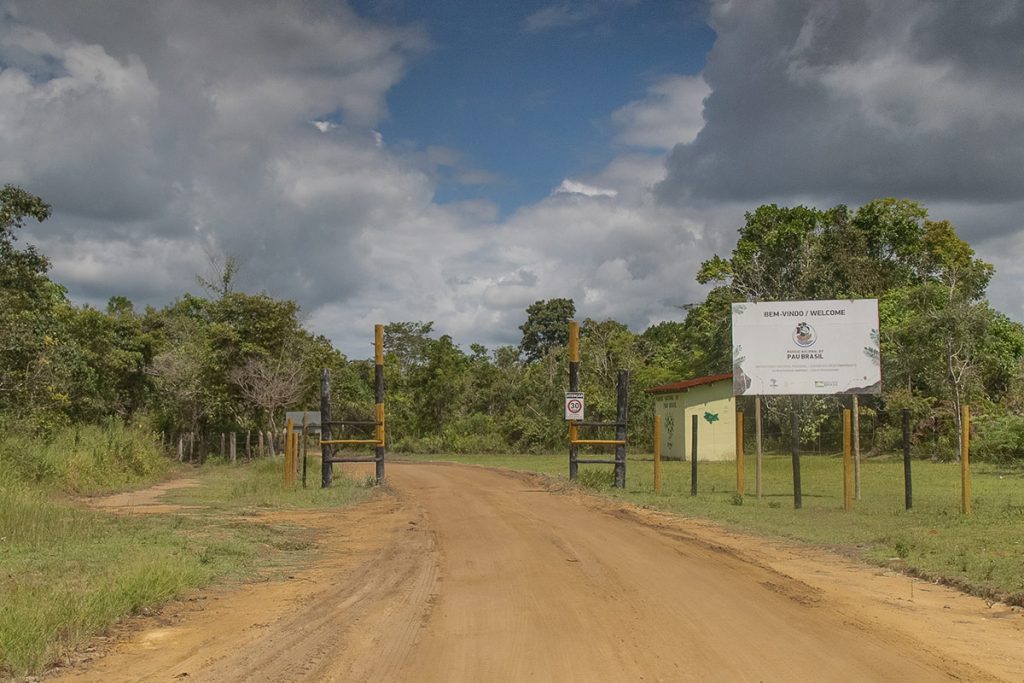May 19 : Inside Pau Brasil National Park, some of the last Brazilwood trees left in the wild are being illegally logged to make bows for stringed instruments.
At night, João can hear the revving of chainsaws echoing across the valley where he lives on Brazil’s Atlantic coast, the soundtrack to the destruction of some of the world’s last wild Brazilwood trees.
The noises come from the nearby Pau Brasil National Park, one of the few remaining fragments of the forest that once covered much of Brazil’s northern coastline. The reserve was created as a safe haven for Brazilwood — also known as Pau Brasil — and other native species, but illegal loggers regularly invade the forest under cover of darkness to cut down the endangered trees.
“In there it’s pure mafia,” João, whom OCCRP is referring to by a pseudonym for his safety, told a reporter from Brazilian magazine piauí. “There are the workhorses, the people who go there and work during the night. Then there is the middleman, who takes them to the buyer.”
Often, said João, the “workhorses” who invade the national park to cut down trees are his own neighbors. “I know people who steal wood,” he said, describing one recent encounter with illegal loggers in February.
That evening, as João was driving his motorcycle down one of the dirt roads that criss-cross the valley to his grandmother’s house, he stopped to greet a friend from the area and an unknown man he was with. As João was about to drive off, he heard the two men joking about the night’s work ahead.
“Today we will do good business,” João recalled one saying to the other. “We will leave the park loaded.”

ICMBio, the agency responsible for policing the Pau Brasil National Park, told reporters it’s investigating reports of illegal logging in February.
Brazilwood is being driven to extinction by an industry not often associated with organized crime: classical music. Known for its density and strength, the wood is crafted into bows that are used to play stringed instruments such as violins and cellos around the world.
But as supplies of Brazilwood have dwindled, Brazil’s bow makers have turned to illicit sources.
Last year, piauí, Data Fixers, and OCCRP revealed that at least 33 bow makers have been investigated fined or had Brazilwood seized by Brazil’s environment enforcement agency over concerns about its origin since 2018. Reporters obtained forensic tests on samples of this confiscated wood that showed they were logged in Pau Brazil National Park.
Experts say the illicit Brazilwood trade can be more profitable than trafficking cocaine, while the penalties for getting caught are far less severe. Sticks of Brazilwood cost just a few dollars to buy in Brazil, but once crafted into bows they can sell for thousands of dollars apiece in the U.S., Europe, and Japan.
For people living near Pau Brazil National Park, the lure of such easy money is hard to resist. While the nearby coastal town of Porto Seguro is known for its luxury resorts and swanky bars, just a few kilometers inland, many local people live in poverty.
Fábio Faraco, who led the ICMBio between 2012 and 2019, said illegal loggers can earn $100 — more than a third of Brazil’s monthly minimum wage — for just one or two nights of work in the park.
“This whole illegal economic circuit is very profitable. These are people who see Brazilwood as an opportunity for easy money,” said Faraco.




No comment